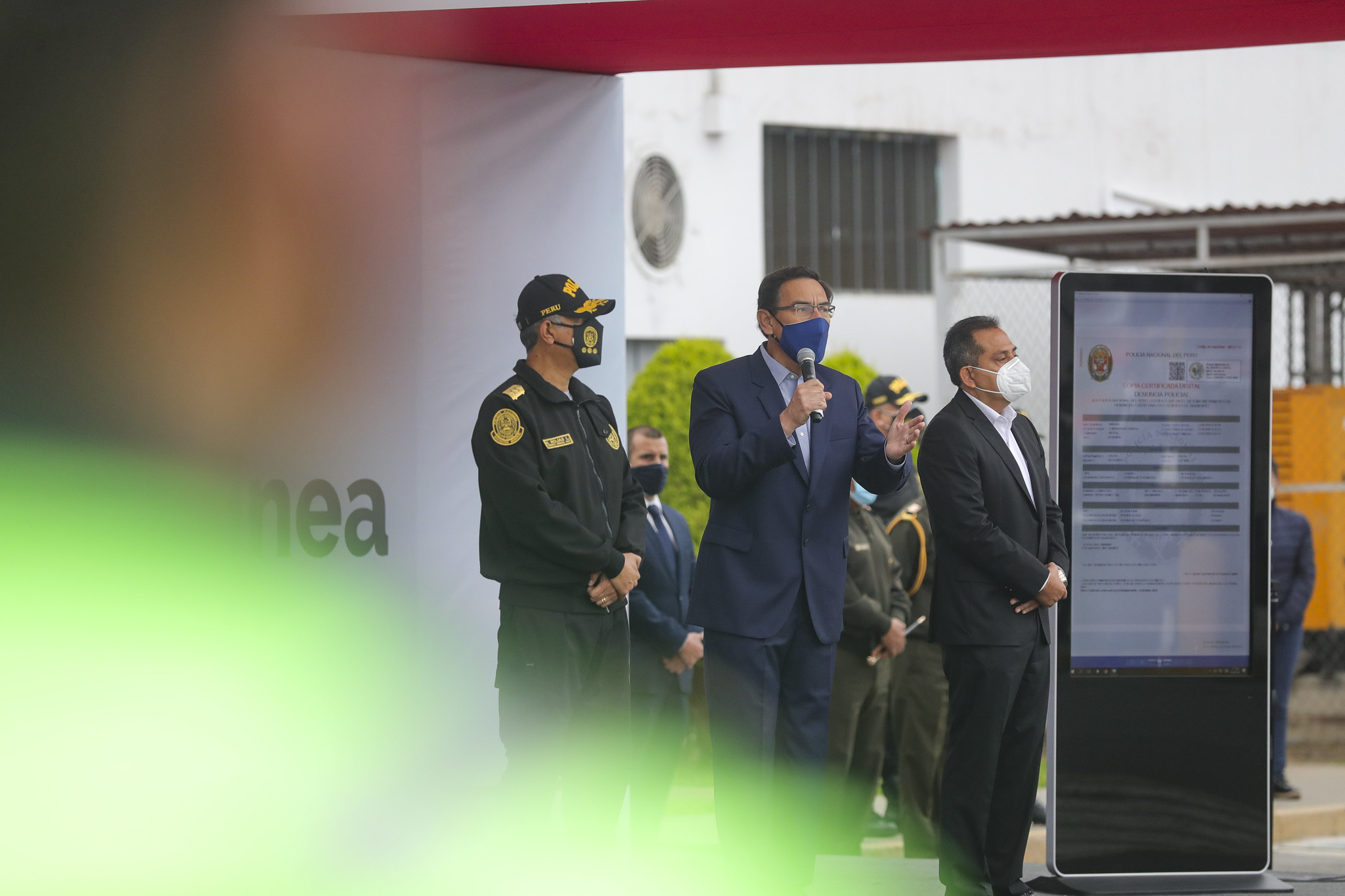Peru’s President, Martín Vizcarra, survived an impeachment vote on Sept. 18. He was accused of “moral incapacity” after audio tapes surfaced appearing to show him attempting to obstruct a corruption inquiry.
The crisis began when Edgar Alarcón, a Peruvian legislator charged with embezzlement, released an audio recording that appeared to show Vizcarra discussing with aides how many times they were visited by musician Richard Cisneros.
Cisneros, also known as Richard Swing, had come under scrutiny for nearly $50,000 in questionable contracts with Vizcarra and the Ministry of Culture for jobs such as motivational speaking during the height of the pandemic.
The musician had performed in support of Vizcarra during his 2016 presidential campaign, but the president denies the contracts were to return a political favor.
According to The New York Times, Vizcarra was heard in an audio recording telling officials that, “in an investigation, we’re all involved…We have to present a common front.”
Although Vizcarra confirmed the voice in the recording is his, he stated he believes the recordings are heavily edited and do not contain proof of any illegal activity.
Vizcarra is the sixth consecutive Peruvian president accused of corruption.
While serving as vice president, Vizcarra’s predecessor, Pedro Pablo Kuczynski, resigned ahead of an impeachment trial on the similar charge of “permanent moral incapacity.”
Vizcarra promised to “clean up the country’s political system,” and gained support for his anti-corruption agenda.
According to a poll by IPSOS Peru, Vizcarra had an 87% approval rating at the beginning of the pandemic.
“He hasn’t been able to carry out all the political reform that he and his allies hope to,” said Steve Levitsky, a Harvard political scientist, according to AP News. “But corruption in middle-income countries is never eliminated in a single presidency.”
The president has faced backlash and tension from politicians for his attempts to change how Peru’s government is run. Vizcarra also has no party representation in Congress.
When the controversy first came to light, Vizcarra denied any wrongdoings and refused to step down. “I am not going to resign, I have a commitment to Peru and I will fulfil it until the last day of my mandate,” Vizcarra said, as reported by Reuters.
Vizcarra also told reporters he believed the impeachment trial was “a plot to destabilise the government.”
This is not the first attempt members of Congress have made to impeach Vizcarra. Last September, Congress attempted to impeach him for incapacity, which ended when he dissolved Congress.
“I do not hide, I have not done so before and I am not going to do it now. I am here, with my head high and my conscience clear,” Vizcarra said to Congress on the day of the trial.
On Sept. 11, Peru’s Congress voted to open the impeachment proceedings. The motion received 65 votes and was backed by six out of nine political parties that represent 95 of the 130 congressional seats.
Before the trial, Vizcarra asked Congress for forgiveness for the disturbance the release of the tapes caused, but maintained the position he did not do anything wrong.
While discussing, many in the opposition-controlled Congress expressed Vizcarra’s apology was unacceptable and wanted a full investigation. However, many also indicated the impeachment trial itself was rushed and flawed.
After 10 hours of debate, only 32 votes were cast in favor of Vizcarra’s impeachment, with over half of the members originally in favor of the trial withdrawing their support. This was severely short of the two-thirds majority, or 87 votes, needed to remove the president.
Some worried the trial was an unnecessary distraction as Peru continues to face the devastation from the COVID-19 pandemic, according to Al Jazeera. Despite strong and early action, Peru was hit hard by COVID-19.
As of Sept. 26, Peru had 800,142 confirmed COVID-19 cases and 32,142 deaths, the highest per capita mortality rate in the world. Peru also had one of South America’s fastest growing economies, but is currently expecting a 12% contraction this year, according to The New York Times.
“The situation with the pandemic is really serious right now,” said head of the Peruvian branch of the anti-corruption group Transparency International, Samuel Rotta, according to the Washington Post. “The last thing Peruvians need is this slap in the face.”
“It’s not the moment to proceed with an impeachment which would add even more problems to the tragedy we are living,” lawmaker Francisco Sagasti said, as reported by AP News.
Vizcarra has called for a proper investigation of claims, but emphasised it is not the right time to add politically motivated hurdles.
“Peru cannot be stopped because of the content of a few audio recordings with no validity,” Vizcarra said in a speech before Congress prior to the vote. “The management of the pandemic and the economic reactivation cannot remain in suspense.”
